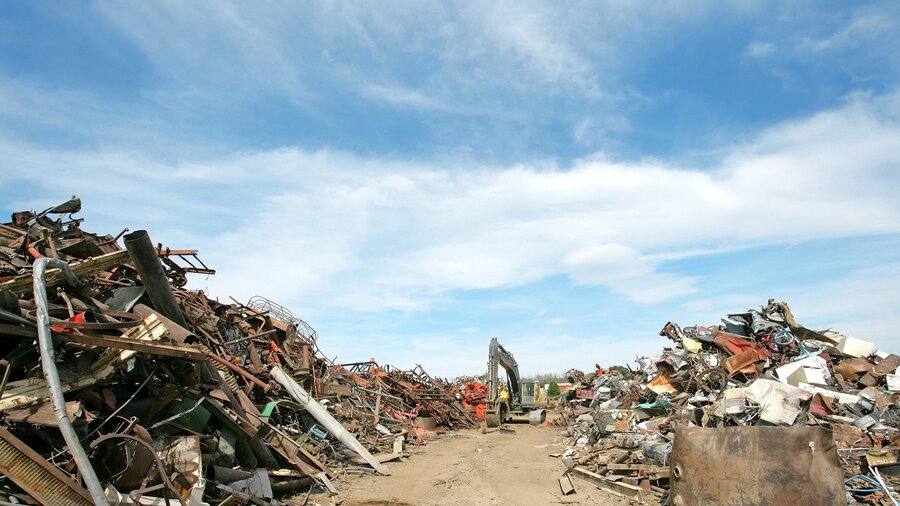

SEP 20, 2023
Copper's remarkable properties, such as electrical conductivity and corrosion resistance, make it indispensable in industries as diverse as electronics to construction. Yet one central question remains when it comes to mining or recycling copper: which approach is more energy-efficient - mining or scrap metal recycling? RCM Recycling addresses both methods.
Copper Mining Process
There are four steps to the copper mining process.
Exploration: To discover copper deposits, intensive geological surveys, and exploration activities must take place using energy-consuming equipment that often necessitates extensive travel; these activities also contribute significantly to greenhouse gas emissions.
Extraction: Copper ore is typically extracted from mines using heavy machinery such as drilling rigs and blasters; drilling holes is then followed by explosives blasting before transporting raw materials for processing into final form.
Transport of Copper Ore: Copper ore must often be transported long distances for processing facilities to access it - incurring extra energy expenditure as transporting energy and associated emissions are required for each move.
Processing: Copper ore arriving at its processing plant undergoes numerous energy-consuming steps, such as crushing, grinding, and smelting.
Energy Cost of Copper Mining
Assessing the energy cost associated with copper mining is no simple matter since its determination depends on many variables, including ore grade, mining methods used, and the efficiency of equipment used.
Recycling Copper as a Sustainable Option
As opposed to mining copper ore, recycling by a scrap metal buyer offers more sustainable and energy-efficient options for recovering this metal resource. Below is why recycling copper makes more environmental sense:
Reduced Energy Consumption: Recycling copper uses less energy than mining and processing virgin ore. Savings could reach as high as 85%, making recycling copper an environmentally-friendly alternative.
Lower Emissions: Since recycling requires less energy consumption than the production of new copper products; its recycling practices result in lower greenhouse gas emissions - helping mitigate climate change while decreasing carbon footprint by cutting energy use during production processes.
Conservation of Resources: Recycling copper conserves precious natural resources while lessening environmental damage associated with mining operations, prolonging the lifespan of existing resources while eliminating new ones.
Reducing Waste: Copper recycling decreases the amount of copper-containing material sent directly to landfills and thus prevents potential environmental contamination and habitat disruption.
Closing the Loop: Toward a Circular Economy
Adopting copper recycling as part of creating a circular economy goes beyond energy savings; it helps promote sustainability while decreasing environmental harm and improving economic efficiency. Copper recycling fits this model perfectly by creating an economy of production-consumption that decreases mining operations while simultaneously meeting local resource needs.
Recent innovations have greatly expanded both the efficiency and sustainability of copper recycling technology. Hydrometallurgical processes and cutting-edge sorting systems facilitate extraction, purification, and recycling with minimum energy usage - making recycling an attractive option.
Challenges and Barriers
Copper recycling offers numerous advantages; however, several obstacles impede its widespread adoption. These include:
Collection and Sorting: Reducing copper waste by recycling can only occur through effective collection and sorting systems that maximize copper recycling rates, so making improvements here will significantly boost recycling rates.
Quality Control: Maintaining the quality and purity of recycled copper for use across different applications is important, making recycling operations an ongoing challenge.
Raising Awareness: Heightening public understanding about the benefits of recycling copper will motivate individuals and businesses alike to join recycling initiatives.
Infrastructure Investments: Investment in copper recycling infrastructure, such as recycling centers and processing facilities, will support an increase in copper recycling.
RCM Recycling
Our scrap metal company aims to foster an eco-friendly future by actively contributing towards responsible resource management. As experts in scrap metal recycling services, RCM Recycling's services have the power to dramatically lower copper production's environmental footprint.